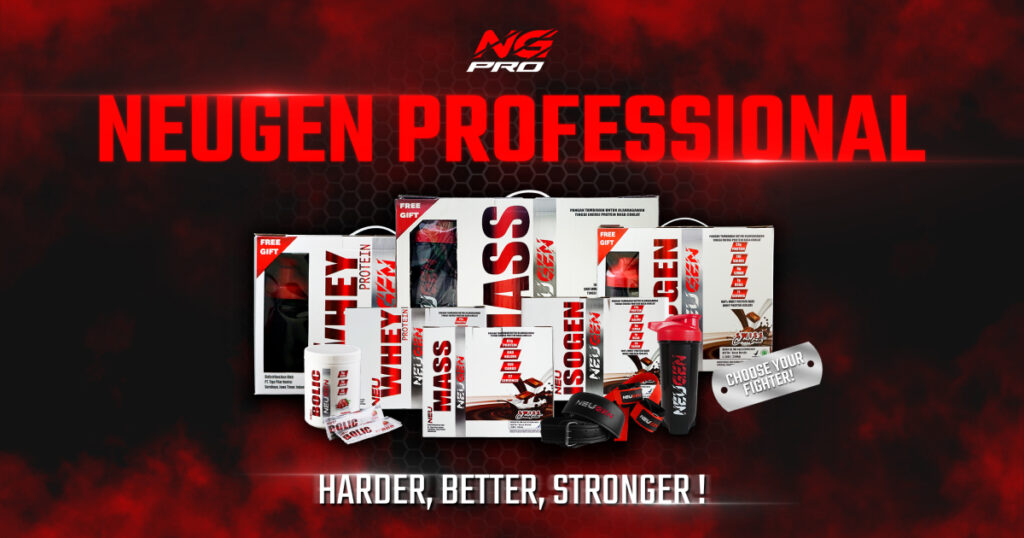As you are undoubtedly aware, protein plays a crucial role in the development of muscle. However, this macronutrient is more important than you might imagine because it's crucial for healing and even bone health.
A high-quality protein powder can provide high-quality protein in a concentrated, more convenient form, even if the bulk of protein should still come from whole food sources including beef, poultry, fish, eggs, dairy, and beans.
Furthermore, because whey protein contains every amino acid your body requires to support muscle growth and recovery, it is regarded as the gold standard.
The simple part is realizing that whey is a fantastic choice. To be sure you're giving your body what it needs and aren't being taken advantage of, check the facts before grabbing any old whey powder.
The differences between whey protein isolate and concentrate and the roles that each can play in an athlete's diet are explained here.
Try NEUGEN Whey Protein if you're looking for a high-quality protein powder that players like LeBron James use and trust!

WHAT IS A PROTEIN?
Whey is a byproduct of the cheese-making process that is made from milk. Milk is treated with enzymes to separate the liquid from the curds. Whey is the liquid that is left behind after the curds are drained.
At first, this liquid was regarded as a "waste" product. Then, manufacturers of supplements discovered that whey might be utilized as a valuable, high-grade protein.
There are various variations in the multi-step process of whey manufacturing. Whey protein isolate and concentrate are the two main forms of whey protein that are available.
Make sure you get the most out of your protein supplements by being aware of the differences and what to look for on a label.
WHEY PROTEIN ISOLATE VS. CONCENTRATE
Protein content is the primary distinction between whey protein isolate and whey protein concentrate.
The most often used form of whey protein is whey protein concentrate. Imagine whey dropping from a conveyor belt into buckets to get an idea of how whey protein concentrate is manufactured. All that is required is to dehydrate, flavor, and filter out impurities before labeling the product as "Delicious Chocolate Whey Concentrate." Although it's not necessary, some supplement firms might add additional ingredients to their concentrate products.
This implies that the amount of protein in whey protein concentrate can vary greatly. If protein makes up 25 to 89 percent of the weight of the whey protein, it can be labelled as "concentrate". Thus, if 25–89 grams of the 100 grams of protein powder that you scoop out are protein, then that protein powder can be referred to as whey protein concentrate.
Conversely, whey protein isolate needs to contain a minimum of 90% protein by weight. As opposed to concentrate, you will receive 90 grams or more of protein when you scoop out 100 grams of whey isolate.
WHAT ABOUT WHEY PROTEIN HYDROLYSATE?
One such type of whey protein you might hear about is whey protein hydrolysate. This kind of whey protein is easier to digest since it has been partially broken down by acid and high heat. (As a result, baby formula frequently contains it.)
Although hydrolysates absorb more quickly than isolates, there isn't much proof to support the idea that this speed boosts muscle growth or recuperation.
WHAT ADVANTAGES DO ALL WHEY PROTEIN TYPES OFFER?
Whey protein is the best option when it comes to growing muscle, according to the majority of research on protein powders. The perfect balance of necessary amino acids is present in whey protein. Furthermore, whey protein has the power to work when taken.
For example, soy protein and whey protein were compared in a research published in The Journal of Nutrition. The waist circumference of those whose diets included whey protein for 23 weeks was lower than that of those whose diets contained soy.
(If you're looking for a non-dairy protein powder, research suggests that pea protein offers similar outcomes to whey. Pea protein powder can be your best bet if you're following a plant-based diet.)
However, whey protein isolate has a few special advantages over concentrate.
The least expensive forms of protein supplementation are typically concentrates. This indicates that the product is not as pure as it may be for a protein powder, but it does not imply that it is of poor quality.
Four factors contribute to the higher cost of whey isolates over concentrates:
Quality of protein. You get a better ratio of protein to calories because it's a purer form of protein.
Protein purity. By filtering out the other macronutrients, whey protein isolate reduces your intake of carbohydrates, sugar, and fat.
Digestion. Since whey protein isolate typically contains less than 1% lactose, people with dairy sensitivity may find it gentler on their stomachs.
Improved mix-ability. Better solubility of whey protein isolate tends to result in a smoother, more flavorful protein smoothie.
WHAT'S THE BEST WHEY PROTEIN FOR YOU?
Although whey protein isolate and concentrate both offer significant advantages, isolate is a more pure type of whey protein and contains a higher percentage of protein than concentrate, often by a significant margin.
It is likely that you will receive a protein that is just 25% protein by weight if you purchase a concentrate.
On the other hand, you'll know you're getting all the protein and amino acids you need to support your goals if you utilize whey protein isolate, which gives you 90% protein by weight.